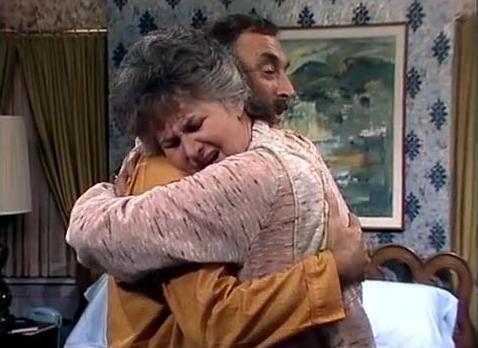Olive's private view is that life depends on what she thinks of as "big bursts" and "little bursts." Big bursts are things like marriage or children, intimacies that keep you afloat, but these big bursts hold dangerous, unseen currents. Which is why you need the little bursts as well: a friendly clerk at Bradlee's, let's say, or the waitress at Dunkin' Donuts who knows how you like your coffee. Tricky business, really.Olive Kitteridge is a Pulitzer Prize winning collection of linked short stories that each, in their own way, shine a light on the titular character: a large, brash, brutally honest, wife, mother, and 7th grade math teacher. Olive's abruptness, sarcasm and hostility in the first story makes a reader instantly dislike her, but by the time I closed this book, I was rooting for Olive with tears in my eyes. The short story format -- each a stand-alone gem of understanding of what it is to be human -- is used to maximum effect to reveal the true Olive and this book is a prime example of what I love about literature.
Author Elizabeth Strout has created an incredibly realistic cast of characters here, and in many cases, their relationships to Olive are peripheral; some stories only mentioning her in passing. I have no compulsion to talk about specifics of this book, but want to remember how many times I felt tears coming -- whether it was when Olive overheard her new daughter-in-law mock the dress she proudly made to wear to her son's wedding, or when Olive reached out to a young anorexic ("I don't know who you are, young lady, but you're breaking my heart") -- the emotion was wrung from me at unexpected times; not because this book is mawkish or sentimental, but because it's just so truthful. Reminding me of what always touches me in Margaret Laurence's novels, it isn't that I have anything superficially in common with Olive Kitteridge, but Strout demonstrates what we all have in common with her: humanity.
As an aside: I was picturing Bea Arthur (as Maude) every time Olive was in a scene, and if anyone remembers that show, it was always surprising to me how affectionate her husband Arthur could be with such a loud and strident woman; always surprising when Maude showed vulnerability. It was unexpected to me, then, to see that an HBO miniseries based on Olive Kitteridge put Frances McDormand in the lead role: and I love Frances McDormand, but isn't Olive's physicality (this huge woman with the surprisingly fragile heart) a rather important part of the picture?

I'll end with a scene I loved; a "big burst" that brought me to tears:
He would not let her go. Even though, staring into her open eyes in the swirling salt-filled water, with sun flashing though each wave, he thought he would like this moment to be forever: the dark-haired woman on shore calling for their safety, the girl who had once jumped rope like a queen, now holding him with a fierceness that matched the power of the ocean -- oh, insane, ludicrous, unknowable world! Look how she wanted to live, look how she wanted to hold on.
And remember this:
There were days -- she could remember this -- when Henry would hold her hand as they walked home, middle-aged people, in their prime. Had they known at these moments to be quietly joyful? Most likely not. People mostly did not know enough when they were living life that they were living it. But she had that memory now, of something healthy and pure.
And remember this:
What young people didn't know, she thought, lying down beside this man, his hand on her shoulder, her arm; oh, what young people did not know. They did not know that lumpy, aged, and wrinkled bodies were as needy as their own young, firm ones, that love was not to be tossed away carelessly . . . No, if love was available, one chose it, or didn't choose it. And if her platter had been full with the goodness of Henry and she had found it burdensome, had flicked it off crumbs at a time, it was because she had not known what one should know: that day after day was unconsciously squandered. . . . But here they were, and Olive pictured two slices of Swiss cheese pressed together, such holes they brought to this union -- what pieces life took out of you.


